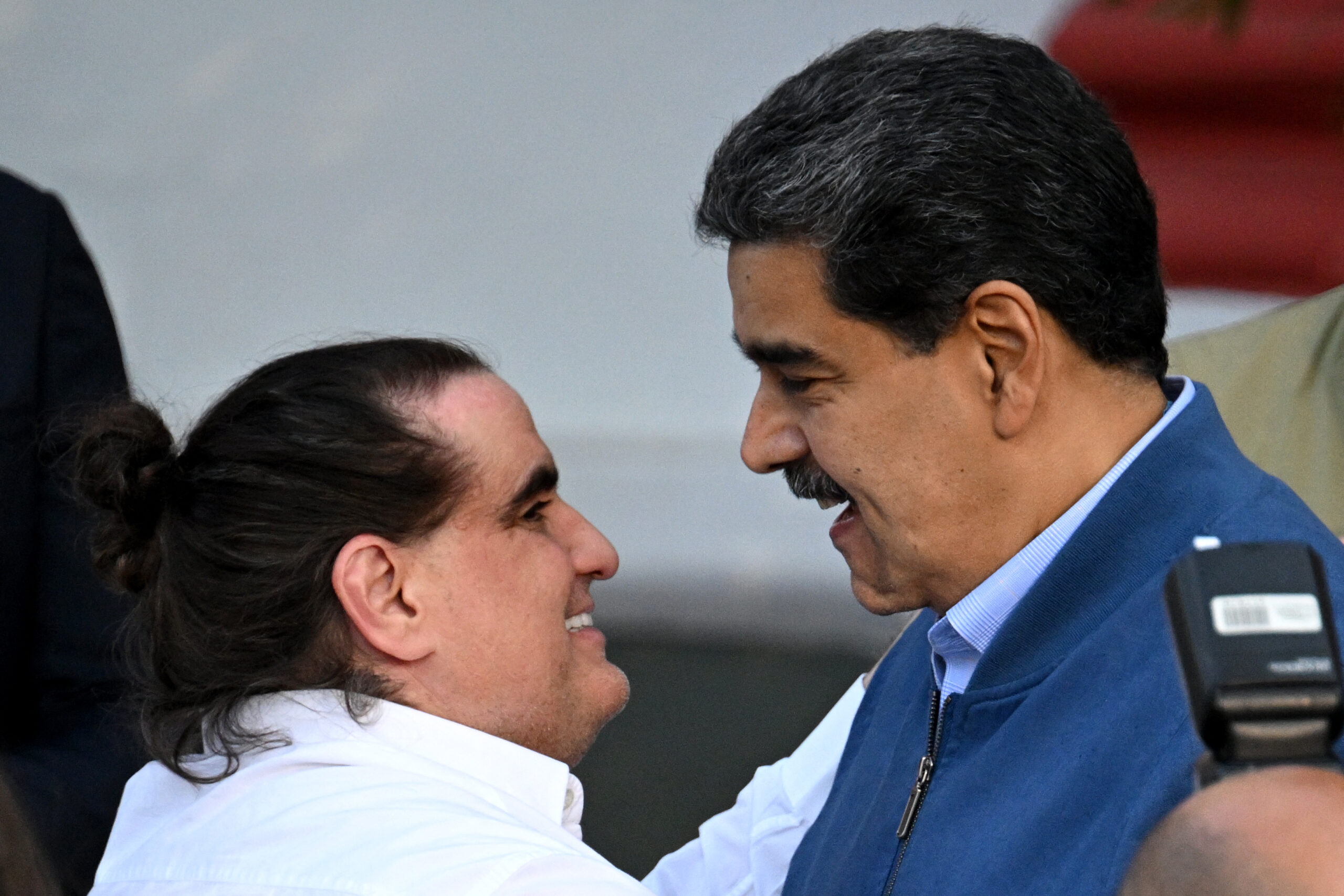In March 2022, María Corina Machado, Venezuela’s leading opposition figure, vehemently urged the U.S. not to ease economic sanctions on Venezuela. Three U.S. officials had mysteriously visited Caracas, and talks leading to sanctions relief for the state-run energy industries were reportedly underway.
Facing an inconceivably complex energy crisis brought on by the war in Ukraine, President Joe Biden had his eye on Venezuela’s oil reserves, the largest in the world. As a sign of good faith, Venezuelan dictator Nicolás Maduro had released two imprisoned American oil executives. Yet Venezuelan opposition leaders insisted that appeasing Maduro would only strengthen his grip on power and produce little payback.
On October 2023, the U.S. Treasury removed, for six months, a vast array of economy-crippling sanctions, the day after Maduro “agreed” in Barbados to hold free and fair presidential elections in 2024 and to free American prisoners in Venezuela. The terms of the deal stipulated that should Maduro violate his end of the agreement, the U.S. could reinstate the 2019-era sanctions. The Wall Street Journal predicted the measure would boost the Venezuelan economy, which had contracted by some 80 percent during Maduro’s corrupt and inept rule, representing a windfall of $6-$10 billion.
But the dream of Maduro keeping his end of the deal is wishful thinking. Charged by the U.S. of narco-terrorism and by the U.N. for human rights abuses, Nicolás Maduro is known more for spinning false narratives than for keeping promises. The opposition leaders have good reasons for urging that the sanctions stay in place.
First, Maduro immediately violated the Barbados agreement in myriad ways. During the October opposition primaries, the state-controlled internet was blocked during transmission of poll results. Immensely popular María Corina Machado, Venezuela’s greatest hope for democracy, had 92.35 percent of the vote. Maduro initiated an “investigation,” accusing election organizers of fraud and declaring the results invalid, though in Venezuela, a president has no jurisdiction over the opposition’s electoral apparatus.
The Biden administration urged Machado to appeal Maduro’s ban on her eligibility to run for president through the Venezuelan Supreme Court, which would only prolong the farce by playing into Maduro’s game. In 2020, Will Freeman of the Council on Foreign Relations wrote, “For years, Venezuelan President Nicolás Maduro and his allies have relied on their control of the judiciary to harass and sideline prominent opposition politicians.”
Second, amid the Ukraine and Middle East wars, appeasing an ally of Iran and Russian President Vladimir Putin is incongruous and dangerous to global security. There is no assurance of who benefits from the billions generated from lifting sanctions. The deal was followed weeks later by Maduro installing a Venezuelan military contingent along the border of oil-rich Essequibo (which pertains to Guyana since 1899), and threatening to annex it.
Venezuela’s military, funded and trained by Russia, are the largest in the region, according to former Major General of the Colombian National Army Eliécer Camacho. “We think the intention could be to initiate a conflict in order to provoke the intervention of the U.S., in order to receive the backing of countries like Russia and China,” he told Newsweek.
President Biden, having no remaining leverage with Maduro, recently negotiated the release of 10 Americans held hostage in Venezuela despite Maduro’s prior promise to free them. In exchange, Biden released Alex Saab back to Venezuela. Saab had been Maduro’s figurehead, a Colombian money-launderer of Lebanese descent, thought by Colombian observers to have been responsible for bringing Hezbollah to South America. He had been awaiting trial in Miami for laundering $350 million of international aid money, of which some went to Hezbollah, a recognized terrorist organization by the U.S.
For context, in 2020, the Atlantic Council found that Hezbollah, an Iran proxy, had helped “turn Venezuela into a hub for the convergence of transnational organized crime and international terrorism.” Venezuela harbors a conglomerate of cartels and terrorists. With the Russian-backed Venezuelan military at their disposal, the war against U.S. interests is stated as their primary objective.
Perhaps the greatest problem with the Venezuela sanctions relief deal is its objective. President Biden, seduced by Venezuela’s oil, sacrificed sound foreign policy for an insignificant amount of oil. Venezuela’s capacity to boost production is 200,000 extra barrels a day, The Wall Street Journal estimated, a drop in the bucket against world demand. Even worse, Venezuela’s oil industry is one of the worst polluters in the world, and according to data from Norway’s Rystad Energy, the worst emitter of CO2 among the world’s oil producers. That’s small reward for an inconceivable price to world security, the environment, and Venezuela’s chances for a democratic transition.
Reinstating the pre-October sanctions may initially make the Biden administration appear weak. But the real weakness is caving in to the whims of a terrorist. If the billions in sanctions relief is used to quash Venezuela’s one real possibility for democracy, the U.S. will be complicit. The sanctions should be reinstated, and the deal declared void.
Source: MSN










